Select Language
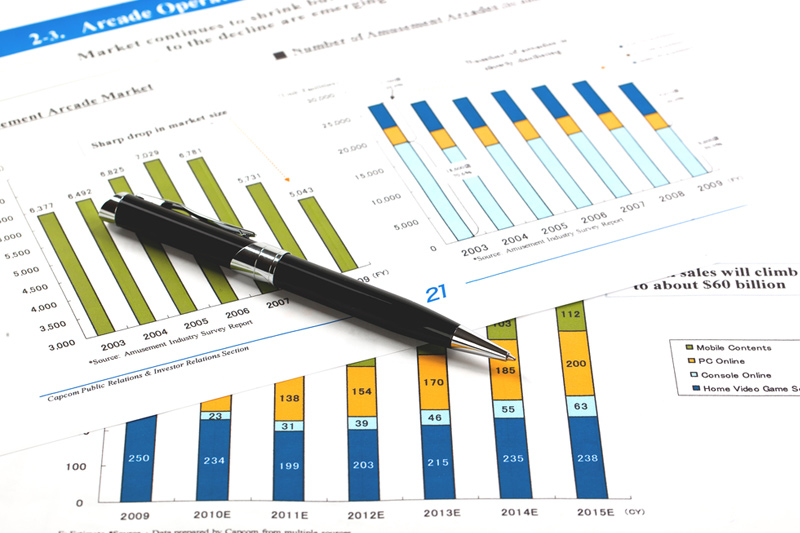
India's rapid economic growth, the fastest among major economies, is under threat as increasing household debt payments diminish consumer spending power. This trend, highlighted by recent data from the Reserve Bank of India, has emerged as a significant concern for the robustly expanding economy.
The data shows that the nation's household financial assets, which include bank deposits, cash, and equity investments, have declined after accounting for debt servicing and consumption. As a percentage of the country's GDP, these household assets have decreased from 7.2% in the previous fiscal year to 5.1% in the fiscal year that ended in March.
This reduction indicates a significant drop in spending power for Indian households. The increasing burden of debt repayments appears to be a key factor in this worrying trend, potentially restricting the flow of funds that fuel this rapidly growing economy.
The implications of this trend could be far-reaching, as consumer spending plays a vital role in driving economic growth. With household debt payments on the rise and consumer spending power decreasing, there are concerns that this could slow down India's accelerating economic growth.
This situation underscores the challenge faced by policymakers in balancing economic growth with household financial health. As India continues its economic expansion, addressing this issue will be crucial to sustaining momentum while ensuring the financial stability of its households.
This article was generated with the support of AI and reviewed by an editor. For more information see our T&C.
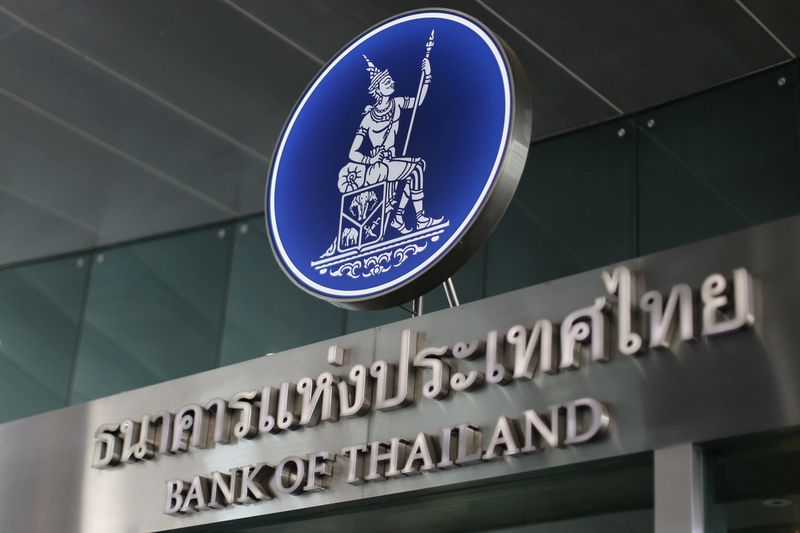
By Anant Chandak and Susobhan Sarkar
BENGALURU (Reuters) - Thailand's central bank will leave its key policy rate unchanged at 2.25% on Wednesday and likely through 2024, marking an end to a year-long tightening cycle, according to a Reuters poll, though a few economists still expect one final hike.
Despite inflation in Thailand edging up slightly to 0.88% in August, it remained below the central bank's 1-3% target range for a fourth consecutive month, suggesting little need for the Bank of Thailand (BOT) to continue hiking.
Governor Sethaput Suthiwartnarueput recently said both economic growth and inflation were expected to be lower than previously forecast due to softer tourism spending and a weak economic outlook for China, the country's major trading partner.
A strong majority of economists in a Sept. 18-22 poll, 21 of 27, expected the BOT to keep its benchmark one-day repurchase rate at 2.25% on Wednesday. Only six forecast another quarter-point hike to 2.50%.
"The BOT will switch to a wait-and-see mode. It is actually in a relatively comfortable position to take its time in terms of making its policy decisions because growth is strong, inflation is low," said Lavanya Venkateswaran, senior ASEAN economist at OCBC.
"We don't see inflation coming back to within BOT's target for the rest of this year at least, and possibly even in Q1 next year ... so I don't think in the near term there's a need to rush into further hikes."
None expected the central bank to raise interest rates at the following meeting in November. Median forecasts showed interest rates remaining at 2.25% through next year.
However, there was a split among those with a longer-term view on rates, with 47% of economists, nine of 19, expecting the BOT to keep rates at 2.25% until end-2024, while six predicted another hike to 2.50%, and four anticipated a cut -- three to 2.00% and one to 1.75%.
"Despite growth slumping ... it's clear the BOT is determined to raise rates at least one more time to reach its estimated neutral rate," noted Aris Dacanay, ASEAN economist at HSBC.
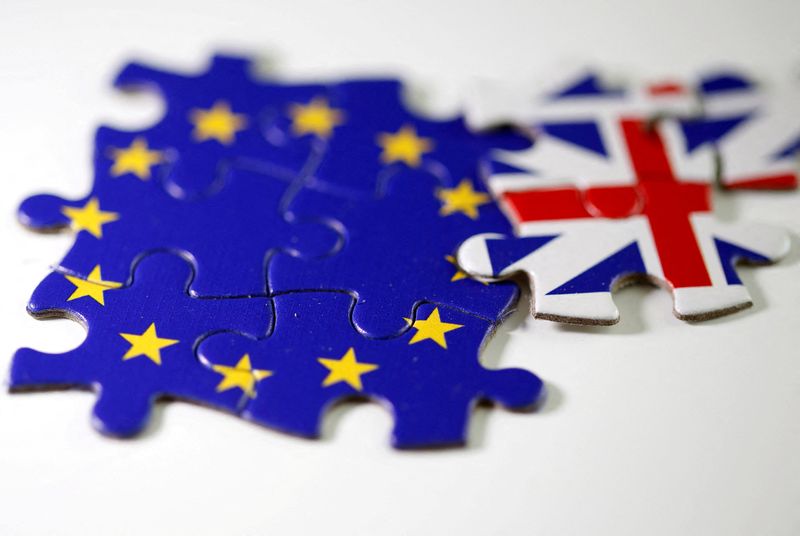
By Nick Carey
(Reuters) - The European Union and Britain need to take urgent action to postpone rules for electric vehicles traded between the bloc and the UK that will trigger 10% tariffs, Europe's car industry group said on Monday.
"Driving up consumer prices of European electric vehicles, at the very time when we need to fight for market share in the face of fierce international competition, is not the right move," European Automobile Manufacturers' Association (ACEA) president and Renault (EPA:RENA) CEO Luca de Meo said in a statement ahead of a planned trade meeting between EU and UK officials this week.
Under the EU-UK post-Brexit trade deal, EVs need to have 45% EU or UK content from 2024, with a 50%-60% requirement for their battery cells and packs, or face British or EU import tariffs of 10%.
The problem is that neither carmakers in Britain nor the EU have built up their EV supply chains sufficiently to meet those requirements and have called for the rules to be postponed until 2027.
Stellantis (NYSE:STLA) has said British car plants will close with the loss of thousands of jobs unless the Brexit deal is swiftly renegotiated, while Ford (NYSE:F) has said it will slow the transition to electric.
The ACEA has said the rules could cost carmakers up to 4.3 billion euros ($4.57 billion) in tariffs and hit output.
So far, the EU executive has been reluctant to renegotiate the deal.
In June, Stefan Fuehring, a European Commission official overseeing the post-Brexit EU-UK trade agreement, said the EU rules of origin were "fit for purpose" and that the bloc was not considering changing them.
($1 = 0.9400 euros)

By Munsif Vengattil and Shivangi Acharya
NEW DELHI (Reuters) - India will defer an import licence requirement for laptops and tablets, two government officials said, a policy U-turn after industry and the U.S. government complained about the move, which could hit Apple (NASDAQ:AAPL), Samsung (KS:005930) and others.
The plan will be delayed by a year, after which the government will consider whether to implement a licensing regime or not, one of the officials told Reuters, requesting anonymity.
The licensing regime, announced abruptly on Aug. 3, aimed to "ensure trusted hardware and systems" enter India, reduce dependence on imports, boost local manufacturing and in part address the country's trade imbalance with China.
But following industry objections, the initial plan was quickly delayed by about three months.
Last month U.S. trade chief Katherine Tai raised concerns with India over the move, which would also affect companies such as Dell (NYSE:DELL) and HP (NYSE:HPQ).
India's electronics ministry is now proposing a simpler import registration process that is due to start in November, said the officials, who have direct knowledge of the discussions.
A representative for India's IT ministry did not immediately respond to a request for comment.
The new 'imports management system' will need companies to obtain 'registration certificates' for imports of laptops, tablets and personal computers, instead of licences proposed earlier by the Aug.3 order, one of the officials said.
The ministry conveyed the proposal to industry officials in a meeting on Friday, they added.
India's electronics imports, including laptops, tablets and personal computers, stood at $19.7 billion in the April to June period, up 6.25% year-on-year.
India to delay import licensing of laptops after US, industry push back, sources say
2
Comments (2)
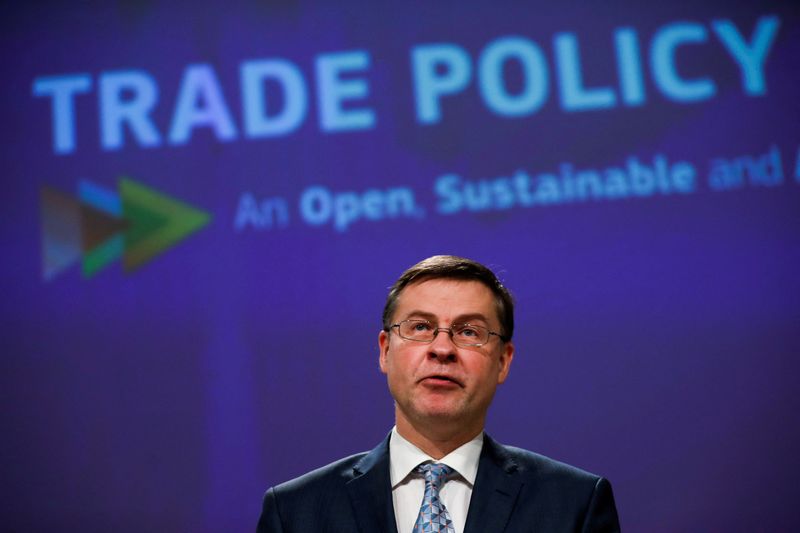
BRUSSELS (Reuters) -Europe's trade chief will push Beijing for fewer restrictions on European businesses on a four-day visit to China, when he can expect tough conversations over a planned EU investigation into electric car imports.
Trade Commissioner Valdis Dombrovskis will take part in a joint economic and trade dialogue, meet Chinese officials and European companies active in China and deliver two speeches during his Sept. 23-26 trip to Shanghai and Beijing.
For the European Union, the visit is designed to renew dialogue with China after its COVID-19 closure and as EU wariness grows over Beijing's closer ties with Moscow following Russia's 2022 invasion of Ukraine.
Dombrovskis will arrive just over a week after the EU executive said it would investigate whether to impose punitive tariffs to protect European producers against cheaper Chinese electric vehicle imports.
The enquiry may result in a frostier reception in China, but sources with knowledge of the trip say it could usefully lead to a more focused discussion on "trade irritants".
The EU blames its 400 billion euro ($426.32 billion) trade deficit partly on Chinese restrictions on European companies and says the EU market is largely open.
A "thousand" barriers to market access have propelled the trade deficit to its "highest in the history of mankind", EU Ambassador to China Jorge Toledo lamented at a forum in Beijing on Thursday.
EU's trade deficit with China widened to $276.6 billion in 2022 from $208.4 billion a year earlier, Chinese customs data show.
The economic and trade dialogue on Monday between Dombrovskis and Chinese Vice Premier He Lifeng, the 10th such discussion since 2008, will be a "litmus test" for two sides, according to Chinese nationalist tabloid Global Times.
'DE-RISK'
The European Union Chamber of Commerce in China said in a report on Wednesday that Chinese authorities were sending contradictory messages to foreign businesses. For many, a swift economic rebound expected after the reopening of China's borders in January failed to materialise.
"Although official announcements aimed at improving the business environment have been released, so has a slew of national security-focused legislation, which has deepened uncertainty and raised compliance risks," the report said.
This includes an anti-espionage law that bans the transfer of information related to national security and interests that it does not specify. It could result in punishments for foreign companies engaged in regular business.
The EU is also expected to be asked during the visit to clarify what it means by "de-risk" in the context of China.
EU officials say the bloc is seeking to curb its reliance on the world's second-largest economy, particularly for materials and products needed for its green transition, but wishes to retain trade ties.
Large European industries have started revising their supply chains to see where they have excessive dependency on China, as they have been "shocked" by Chinese restrictions on exports of strategic metals germanium and gallium, Toledo said.
China placed export curbs on eight gallium and six germanium products from August in its latest salvo of an escalating war between Beijing and Washington over access to materials used in making high-tech microchips.
Germany is also planning to force telecoms operators to slash the use of equipment from Huawei and ZTE (HK:0763) in their 5G networks, prompting a warning from China that it would not "stand idly by" should Berlin proceed with the curb.
($1 = 0.9383 euros)
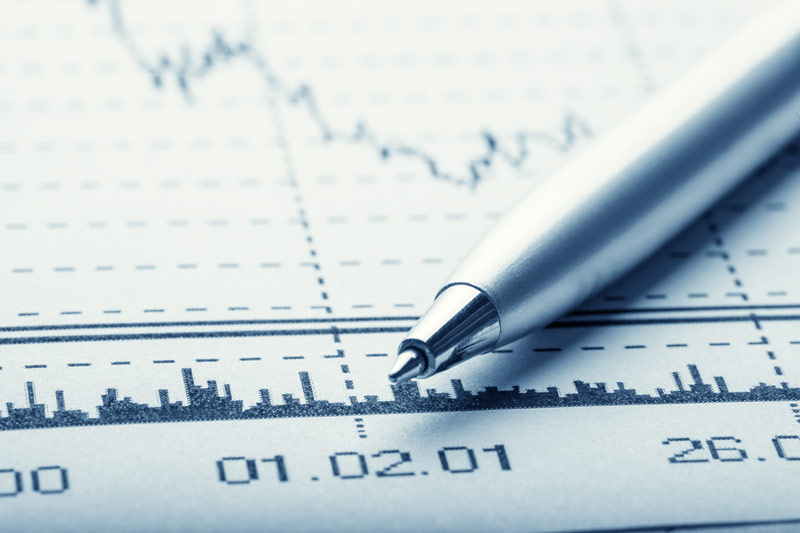
U.S. bond yields have climbed to a significant 17-year high this week, following the Federal Reserve's decision to maintain a higher interest rate stance at its September policy meeting. The two-year U.S. Treasury note yield reached 5.2% on Thursday, marking a 1.4 percentage point increase since May and its highest level since 2006. The 10-year Treasury note yield is also nearing a 16-year high of 4.5%.
This surge in yields is largely attributable to the Federal Reserve's interest rate cuts in 2020, introduced in response to the Covid-19 pandemic. Investors flocked to safe assets like Treasuries, leading to an increase in Treasury prices and subsequently suppressed yields.
However, due to ongoing economic strength and a tight labor market fueling persistent inflationary pressures, the Federal Reserve is expected to continue its tightening policy well into 2023. This could potentially lead to further decreases in bond prices as markets anticipate a higher peak in the federal-funds rate this year and fewer cuts in 2024.
This trend of rising monetary policy rates isn't exclusive to the U.S., with 38 central banks worldwide reporting their highest rates since 1995 when adjusted for gross domestic product. With persistent inflation and a robust economy, interest rates are unlikely to revert to zero in the near future.
Investors are being advised to secure current yields through Treasuries, bank certificates of deposit, or other structured investments. Despite potential short-term increases, bond yields are expected to be significantly lower a year from now.
By 2024, the Federal Reserve is likely to ease off in response to progress on inflation and signs of slowing U.S. economic growth. This easing may not immediately involve cutting the federal-funds rate but will allow officials to signal that they have reached peak rates for this cycle more definitively.
Evidence suggests that the 10-year yield typically peaks a few months after the Federal Reserve's final rate hike, which could occur at the Federal Open Market Committee's November or December meetings. Other international central banks, such as the Bank of England, European Central Bank and the Swiss National Bank, appear to have ceased hiking their rates, while Brazil and Poland have started reducing interest rates from their recent peaks.
Despite the largest increase in bond yields in decades, the stock market has experienced a rally in 2023 due to expanding valuation multiples. However, the higher-for-longer interest rates pose a risk for stocks and offer upside potential for bond prices. In a weaker economy scenario that necessitates rate cuts, earnings may fail to meet expectations. Therefore, adding more bonds to a portfolio today can provide an attractive return rate and diversification, offering stability to investors' portfolios.
This article was generated with the support of AI and reviewed by an editor. For more information see our T&C.

MEXICO CITY (Reuters) -Mexico's foreign ministry urged U.S. authorities on Thursday not to take "unilateral measures" complicating trade at the border with the United States, as some ports of entry have been shut down.
U.S. officials have temporarily closed some border crossings to shift Customs and Border Protection (CBP) officers to process more migrant arrivals, limiting the flow of goods into the country.
Mexico added it was in constant contact with U.S. authorities and business leaders "to look for operations to be reestablished, given the situation."
Rail operator Union Pacific (NYSE:UNP) said thousands of tons of customer freight were stalled as train traffic to Mexico via Eagle Pass in Texas has halted.
The pass is one of the busiest gateways between the U.S. and Mexico and was shut as media outlets reported migrants from Mexico riding on rail cars to cross into the small Texas city.
"(Our) other gateways cannot handle the extra traffic and we are notifying customers of an embargo at Eagle Pass, effective immediately," Union Pacific said late on Wednesday.
The influx of migrants prompted Eagle Pass Mayor Rolando Salinas to issue emergency declaration, citing a "severe undocumented immigrant surge".
The situation is expected to continue for seven days from Tuesday, according to the city's official account on social media platform X, formerly Twitter.
Cargo processing at the Bridge of the Americas on the border between El Paso, Texas, and the Mexican city of Juarez was also halted this week because of more migrant arrivals.
Meanwhile, Mexican rail operator Ferromex recently stopped some cargo trains, bringing estimated losses of up to 40 million pesos ($2.32 million) a day, after a spate of deaths and serious injuries of migrants riding on them.
($1 = 17.2070 Mexican pesos)

In a historic settlement agreement reached by the Biden administration on Thursday, September 21, 2023, at least $6 billion in student loans is set to be forgiven for hundreds of thousands of borrowers. However, allegations of violations from a major student loan servicer have cast a shadow over the agreement.
The settlement, approved by the Supreme Court last spring, resolved Sweet v. Cardona, a class-action lawsuit initiated against the Trump administration by student loan borrowers. The lawsuit was filed over delayed or rejected applications for the Borrower Defense to Repayment program. This program allows students to apply for loan forgiveness if they can prove their school engaged in deceptive practices.
As part of the settlement, the Education Department committed to forgive $6 billion in student loans for over 200,000 applicants who attended an institution from an approved list of schools. Additional relief measures include refunds of past payments and corrections to damaged credit reports. The department also pledged to expedite processing for other borrowers applying for the Borrower Defense program.
Since its implementation earlier this year, federal student loan debt discharge has been initiated for at least 128,000 class members, according to the Project on Predatory Student Lending, the legal group representing the borrowers.
However, controversy arose when MOHELA, a major Education Department loan servicer, was accused by the Project on Predatory Student Lending of violating the terms of the Sweet v. Cardona settlement. MOHELA allegedly informed class members that they must resume loan repayments in October, contrary to the settlement agreement which states that approved borrowers should not be required to make payments while their loans are being discharged.
The Project on Predatory Student Lending raised concerns about this issue in a letter sent to MOHELA, warning that legal action could be pursued if the collections efforts continued.
This incident with MOHELA forms part of a wider issue as student loan payments resumed following the student loan pause last month. Over 40 million borrowers are now resuming repayment, amidst numerous reported problems including long call hold times and misinformation from loan servicers. The Consumer Financial Protection Bureau, a federal agency overseeing the financial services sector, has warned student loan servicers that it is monitoring the situation closely.
This article was generated with the support of AI and reviewed by an editor. For more information see our T&C.

By Lucia Mutikani
WASHINGTON (Reuters) - The number of Americans filing new claims for unemployment benefits dropped to an eight-month low last week, pointing to persistent labor market tightness even as job growth is cooling.
The report from the Labor Department on Thursday also showed unemployment rolls in early September were the smallest since January. It was published a day after the Federal Reserve held interest rates steady but stiffened its hawkish stance, with a further rate increase projected by the end of the year and monetary policy to be kept significantly tighter through 2024 than previously expected.
"This economy is just not showing any sign of slowing down which hints that inflation will not be coming back down to target," said Christopher Rupkey, chief economist at FWDBONDS in New York. "The Fed was wise to keep another interest rate hike in their back pockets just in case, and it now looks like another rate hike is warranted."
Initial claims for state unemployment benefits dropped 20,000 to a seasonally adjusted 201,000 for the week ended Sept. 16, the lowest level since January. Economists polled by Reuters had forecast 225,000 claims for the latest week. Claims are in the lower end of their 194,000-265,000 range for this year.
Claims could, however, increase in the coming weeks as a partial strike by the United Auto Workers (UAW) union forces automobile manufacturers to temporarily lay off workers because of shortages of some materials.
The UAW last week launched a targeted strike against Ford (NYSE:F), GM and Stellantis (NYSE:STLA), impacting one assembly plant at each company. It has threatened to broaden the work stoppages, which for now only involve about 12,700 of the affected 146,000 UAW members.
Though striking workers are not eligible for unemployment benefits, the walkout has snarled supply chains.
Ford has furloughed 600 workers who are not on strike, while GM expected to halt operations at its Kansas car plant, affecting 2,000 workers. Chrysler parent Stellantis said it would temporarily lay off 68 employees in Ohio and expects to furlough another 300 workers in Indiana.
Unadjusted claims rose by only 67 to 175,661 last week. There were notable declines in filings in Indiana and California, which mostly offset sizeable increases in South Carolina, New York and Georgia.
Fed Chair Jerome Powell said on Wednesday that "the labor market remains tight, but supply and demand conditions continue to come into better balance."
Employment growth has been slowing and job openings falling. Labor market resilience is propping up the economy even as recession fears linger. The leading indicator, a gauge of future U.S. economic activity, fell 0.4% in August after dropping 0.3% in July, the Conference Board said in a second report on Thursday.
It has dropped for 17 straight months. Since March 2022, the U.S. central bank has raised its benchmark overnight interest rate by 525 basis points to the current 5.25%-5.50% range.
The claims data together with the Fed's hawkish stance pushed stocks on Wall street lower. The dollar gained versus a basket of currencies. U.S. Treasury prices fell, with the yield on the benchmark 10-year bond rising to a nearly 16-year high.
HOUSING FALTERING
The claims data covered the period during which the government surveyed business establishments for the nonfarm payrolls component of September's employment report.
The strike is unlikely to have an impact on payrolls as it started towards the end of the survey week. Workers most likely received pay for that week. Claims fell between the August and September survey period.
Data next week on the number of people receiving benefits after an initial week of aid, a proxy for hiring, will offer more clues on the state of the labor market in September.
The so-called continuing claims declined 21,000 to 1.662 million during the week ending Sept. 9, also the lowest level since January, the claims report showed. That suggests laid-off workers are quickly finding employment.
While the labor market remains unbowed, the housing market is faltering after showing signs of stabilizing earlier this year as mortgage rates resume their upward trend in tandem with the 10-year Treasury note, which has spiked on worries soaring oil prices could hamper the Fed's fight against inflation.
Existing home sales slipped 0.7% last month to a seasonally adjusted annual rate of 4.04 million units, the National Association of Realtors said in a third report.
Existing home sales are counted at the closing of a contract. Last month's sales likely reflected contracts signed in July, before the recent run-up in mortgage rates, which lifted the rate on the popular 30-year fixed mortgage above 7%.
Home sales last month were restrained by persistently tight supply, with inventory falling 14.1% from a year earlier to 1.1 million, the lowest on record for any August.
As a result, the median house price accelerated 3.9% from a year earlier to $407,100, the fourth-highest reading. It hit a record $413,000 in June 2022.
"The prospects for improved sales in the coming months look bleak," said Ben Ayers, senior economist at Nationwide in Columbus, Ohio. "2023 could end in a whimper for the real estate sector as any substantial pull-back in rates is likely far off into 2024."
News on manufacturing was downbeat. Manufacturing together with housing have borne the brunt of the Fed's aggressive monetary policy tightening.
A fourth report from the Philadelphia Fed showed factory activity in the mid-Atlantic region slumped in September. Firms in the region that covers eastern Pennsylvania, southern New Jersey and Delaware reported decreases in new orders and shipments. They continued to report a decline in employment.
The Philadelphia Fed's business conditions index fell to -13.5 this month from 12.0 in August. It was the index's 14th negative reading in the past 16 months.
"Softer demand for goods and higher borrowing costs are hurdles for activity," said Rubeela Farooqi, chief U.S. economist at High Frequency Economics in White Plains, New York. "But re-shoring of supply chains, infrastructure projects and a stabilization in demand could provide support to manufacturing output over time."
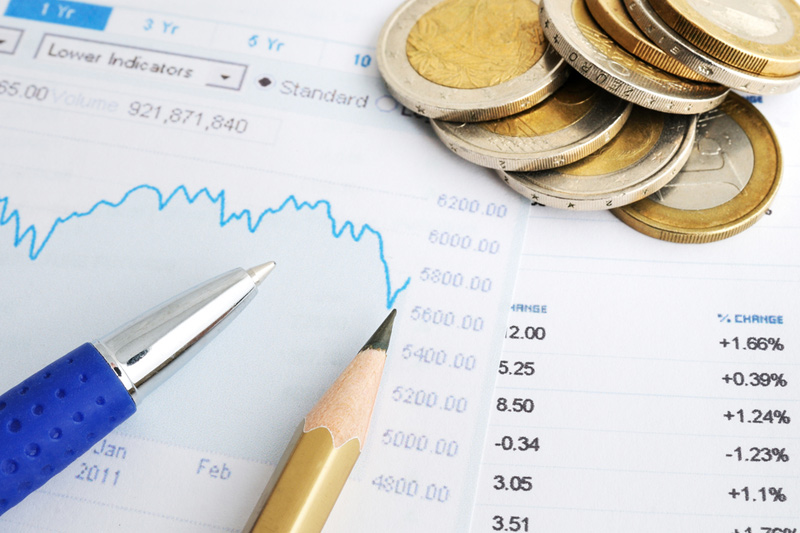
The Securities and Exchange Commission (SEC) has updated its regulations to require investment fund managers to clarify the relationship between their funds' names and their investment strategies. The new rule, passed on Wednesday, mandates that a fund should invest at least 80% of its assets in alignment with its name. This regulation is an enhancement from previous rules established in 2001 and aims to adapt to changes within the fund industry.
SEC Chairman, Gary Gensler, who proposed the rule change, believes this requirement will assist investors in understanding what fund marketers imply when they use terms like "big data" or "artificial intelligence" in their fund names. The rule will obligate fund prospectuses to clarify the terminology used in a fund's name and explain the criteria employed by managers to select investments that align with the name. These criteria will be incorporated into the fund's official investment policy.
The new regulation met resistance from Mark Uyeda, one of the two Republican members of the commission, who voted against it, citing it as too demanding. However, Hester Peirce, the other Republican member, supported the rule change.
The updated rule comes as a response to changes in the fund industry which include an increase in managed funds and a rise in themed funds that pursue specialized strategies. Funds focusing on environmental, social, or governance objectives are recent examples.
The regulations will take effect 60 days after publication in the Federal Register. Fund groups managing at least $1 billion will have a 12-month period to comply, while smaller fund groups will be given 18 months. Approximately 75% of funds, totaling around 10,000, will fall under these new name rules.
The rule allows for some flexibility regarding the requirement that 80% of assets align with the fund's theme. This condition applies when managers initially invest the fund's assets. However, due to fluctuations in holdings and securities prices, the SEC requires managers to review their compliance quarterly. If a fund's holdings drop below the 80% threshold, it has roughly 90 days to regain compliance. Derivatives such as swaps, options, and futures will also count towards this 80%.
This article was generated with the support of AI and reviewed by an editor. For more information see our T&C.

